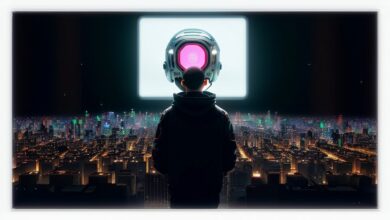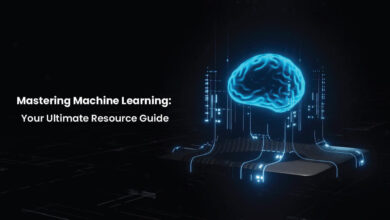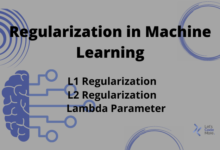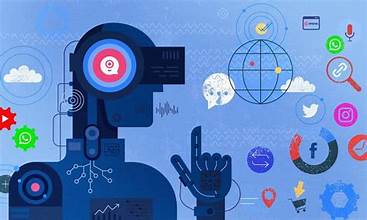AI vs. Humans: Can Artificial Intelligence Really Be Smarter Than We Are?
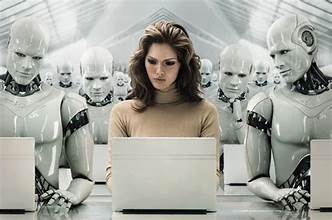
The phrase “artificial intelligence” (AI) has become more widely used in recent years. From sophisticated manufacturing robots to intelligent assistants like Siri and Alexa, it is mentioned everywhere. Though AI is still developing, there is still a serious question: Is AI really capable of outthinking humans? We ought to delve into this intriguing investigation and find out how computer intelligence compares to human understanding.
What is Artificial Intelligence?
The term “computerized reasoning,” which is often abbreviated as “simulated intelligence,” refers to the artificial reproduction of human knowledge. In essence, the goal is to develop computer systems that are capable of carrying out tasks that would typically require human intelligence. This includes solving problems, identifying patterns, learning from data, and even understanding natural language.
The Evolution of AI
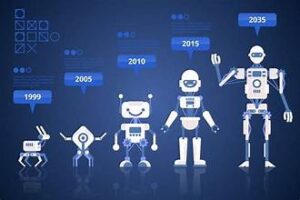
AI has come a long way since it first started.From the earliest rule-based systems to the most advanced neural networks of today, AI’s development has kept pace with its expanding capabilities. AI was first restricted to simple tasks, but improvements in data processing and machine learning have produced increasingly sophisticated and potent systems.
Human Intelligence vs. Artificial Intelligence
Understanding the distinctions between artificial and human intelligence is essential when comparing the two. The qualities of creativity, emotional intelligence, and sophisticated decision-making define human intelligence. AI, on the other hand, is very good at processing massive amounts of data fast and accurately, but it lacks true emotional complexity and creativity
AI’s Strengths
Processing enormous volumes of data at very fast speeds is one of AI’s greatest advantages. Because of this ability, artificial intelligence (AI) is extremely useful in industries like medicine, where it can examine medical records and spot trends that human physicians might overlook. In repetitive tasks, AI performs better than humans, guaranteeing accuracy and efficiency.
Where AI Falls Short

AI has limits even with its advantages. AI systems, for example, find it difficult to perform tasks requiring a profound comprehension of emotions or context. They also rely a great deal on the caliber of the training data. The outcomes of the simulated intelligence may be flawed in the unlikely event that the data is biased or disjointed.
Real-World Applications of AI
Applications for AI are numerous. It is useful in finance for locating extortion and examining financial exchanges. It is employed in the medical field to diagnose illnesses and customize treatment regimens. AI powers music and movie recommendation engines even in the entertainment industry. These uses demonstrate the flexibility of AI while also emphasizing the importance of human oversight in certain situations.
The Creative Edge: Can AI Be Creative?
Is AI really creative? is a question that is frequently debated. Although AI is capable of producing writing, music, and art, it does so by using patterns and data that it has been given. It is devoid of the intuitive understandings and emotional encounters that inspire human creativity. Thus, while AI is capable of simulating creative tasks, it lacks genuine inspiration or firsthand experience.
Ethical Considerations of AI
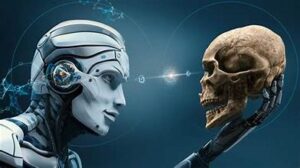
There are serious ethical questions raised by the development of AI. Key topics of discussion include privacy, job displacement, and decision-making accountability. Who is in charge, for example, if an AI system makes a mistake? As we continue to incorporate AI into different facets of life, it is imperative that we address these ethical issues.
AI in Decision Making
AI is being utilized more and more in decision-making processes, ranging from medical diagnostics to credit approvals. Though data-driven insights can help decision-making, it’s important to keep in mind that AI is devoid of human judgment and morality. AI-only decisions might ignore subtleties that a human viewpoint could bring to light.
AI and Human Emotions
AI has no feelings of its own. Though it doesn’t fully comprehend human emotions, it can use data to analyze and react to them. Due to this constraint, AI is unable to truly sympathize or offer emotional support in the same manner as humans, even though it is able to identify when someone is happy or sad.
Can AI Surpass Human Intelligence?
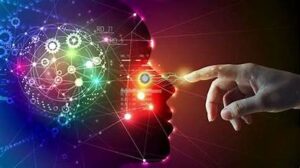
It’s complicated to say whether artificial intelligence can perform better than human insight. In some tasks, AI can perform better than humans, particularly in tasks that require processing large amounts of data. But the bigger question of whether AI can outsmart humans includes emotional intelligence, creativity, and subtle understanding—all areas in which AI still lags behind.
Future Prospects: What Lies Ahead?
The future of artificial intelligence appears bright and full of possibilities. We can anticipate AI becoming even more ingrained in our daily lives as technology develops. Breakthroughs in a variety of fields could result from advances in AI, but it will be important to balance these developments with moral considerations.
The Human Touch: Why It Still Matters
Despite AI’s amazing potential, human interaction is still invaluable. AI is unable to replicate human intuition, empathy, or moral judgment. It’s critical to strike a balance between appreciating human traits and utilizing AI’s advantages as it develops.
Conclusion
In conclusion, even though artificial intelligence (AI) has advanced significantly and has amazing potential, it is not yet ready to completely surpass human intelligence. Artificial intelligence (AI) is great at processing data and doing repetitive tasks, but it isn’t as creative, emotional, or sensitive as human intelligence. As we develop, it’s critical to recognize the distinctive characteristics that set humans apart from AI and to capitalize on its advantages.
FAQs
1. What is Artificial Intelligence?
Artificial Intelligence is the simulation of human intelligence in machines designed to perform tasks that usually require human intellect, such as learning and problem-solving.
2. Can AI surpass human intelligence?
While AI can outperform humans in specific tasks, particularly those involving data processing, it currently cannot surpass human intelligence in areas requiring emotional depth and creativity.
3. What are some real-world applications of AI?
AI is used in various fields including healthcare for diagnostics, finance for fraud detection, and entertainment for recommendation engines.
4. Why is ethical consideration important in AI development?
Ethical considerations in AI are crucial to address issues like privacy, job displacement, and accountability, ensuring that AI systems are used responsibly and fairly.
5. Can AI be creative?
AI can generate creative outputs like art and music but does so based on data and patterns rather than personal experience or genuine inspiration.


